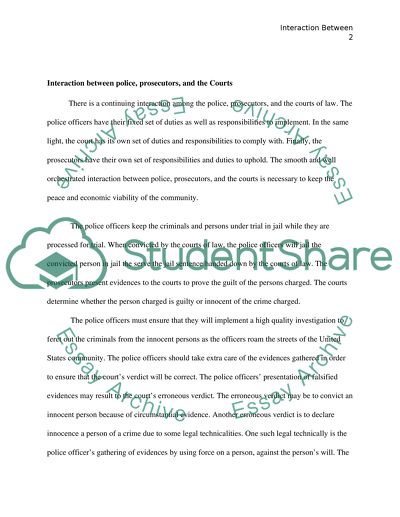Cite this document
(“Interaction between Police, Prosecutors, and the Courts Research Paper”, n.d.)
Retrieved from https://studentshare.org/law/1430454-1-discuss-the-interaction-between-police-prosecutors-and-the-courts2-explore-and-evaluate-the-challenges-that-these-entit
Retrieved from https://studentshare.org/law/1430454-1-discuss-the-interaction-between-police-prosecutors-and-the-courts2-explore-and-evaluate-the-challenges-that-these-entit
(Interaction Between Police, Prosecutors, and the Courts Research Paper)
https://studentshare.org/law/1430454-1-discuss-the-interaction-between-police-prosecutors-and-the-courts2-explore-and-evaluate-the-challenges-that-these-entit.
https://studentshare.org/law/1430454-1-discuss-the-interaction-between-police-prosecutors-and-the-courts2-explore-and-evaluate-the-challenges-that-these-entit.
“Interaction Between Police, Prosecutors, and the Courts Research Paper”, n.d. https://studentshare.org/law/1430454-1-discuss-the-interaction-between-police-prosecutors-and-the-courts2-explore-and-evaluate-the-challenges-that-these-entit.


